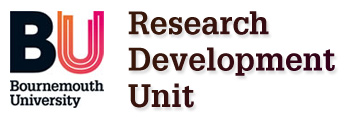 It’s a beautiful summer’s day and to celebrate the new academic year the Research Development Unit has some exciting news – the launch of the BU Research Development Fund!
It’s a beautiful summer’s day and to celebrate the new academic year the Research Development Unit has some exciting news – the launch of the BU Research Development Fund!
The Research Development Fund (RDF) is open to BU academics and will provide selective support to research initiatives considered to be of strategic importance to BU. There are two strands to the RDF: i) Small Grants Scheme (up to £2k per application); and ii) Large Collaborative Grants Scheme (up to £25k per annum, must include two or more Schools). It is envisaged that each year approximately 20 small grants will be awarded and one large collaborative grant.
Awards will only cover direct costs (i.e. overheads and established staff costs will not be reimbursed). Applications need to include a precise breakdown of costs calculated using full economic costing (fEC) methodology – this will be calculated for you by the CRE Operations team.
All decisions on funding will be made by the University R&E Forum (UREF).
An overview of the two schemes is provided below. For further information please read the Research Development Fund Policy.
RDF – Small Grants Scheme (up to £2k per award) – There will be three competitions per annum. Academic staff wishing to apply must submit an application form to the PVC (Research, Enterprise and Internationalisation) via the RDU by the scheme deadlines:
- 31 October 2011
- 28 February 2012
- 31 May 2012
Priority will be given to applications that involve staff from two or more Schools and/or those from early career researchers.
Examples of research activities covered by the RDF include:
- Pilot projects
- Pump-priming
- Interview transcription
- Fieldwork
- Visiting major libraries, museums, other research institutions, etc.
- Organisation of an academic conference at BU with external participants
- Attendance at external networking events leading to collaborative research proposals
- Meetings with external organisations to establish collaborations
- Preparation of specialist material or data
- Short-term Research Assistant support or replacement teaching
- Research consumables and equipment (providing it is clear these would not normally be purchased by the School)
To apply for a Small Grant, please complete the RDF-SGS application form.
RDF – Large Collaborative Grants Scheme (up to £25k per award) – There will be one competition per annum. Academic staff wishing to apply must submit an application form to the PVC (Research, Enterprise and Internationalisation) via the RDU by the scheme deadline:
- 1 December 2011
The RDF – Large Collaborative Grants Scheme aims to provide funding for the development of large-scale, complex, inter/multi-disciplinary collaborative research activities leading to external funding. Applications must involve academic staff from at least two BU Schools. Priority will be given to applications that meet the following criteria:
- In line with BU’s emerging Research Themes
- Include external organizations (particularly SMEs and/or international organizations)
- In line with the strategic priorities of major funding bodies (such as the UK research councils, European Commission, etc)
- Clearly beneficial to BU’s submission to REF2014
Examples of research activities covered by the RDF include:
- Pilot projects
- Pump-priming
- Meeting expenses
- Travel to proposed collaborators
- Attendance at external networking events with the aim of expanding the network
- Preparation of specialist material or data
- Short-term Research Assistant support or replacement teaching
- Consumables and equipment (providing it is clear these would not normally be purchased by the School)
- Fees for external proposal support and review
To apply for a Large Collaborative Research Grant, please complete the RDF-LCGS application form.


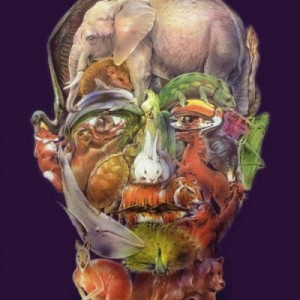

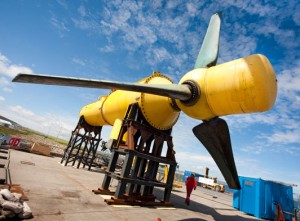 “European Union ministers meeting in Luxembourg have signalled support for draft European Commission plans for an energy efficiency law impacting directly on utilities”
“European Union ministers meeting in Luxembourg have signalled support for draft European Commission plans for an energy efficiency law impacting directly on utilities” 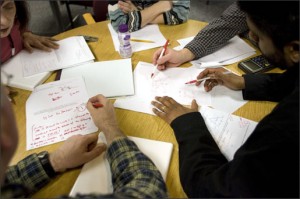 This is an update on the ‘Collaboration Tools for Academics’ project that many of you will have contributed to. The project is being run by Amina Uddin, Steve Webster, Matthew Bennett, Julie Northam, Alan Fyall, Sarah Hearn and Clive Andrews on behalf of the academic community as a whole. The project seeks to deliver a set of useful services that have been identified by the academic/research community as the most useful in supporting collaborative work whether it be for education or research.
This is an update on the ‘Collaboration Tools for Academics’ project that many of you will have contributed to. The project is being run by Amina Uddin, Steve Webster, Matthew Bennett, Julie Northam, Alan Fyall, Sarah Hearn and Clive Andrews on behalf of the academic community as a whole. The project seeks to deliver a set of useful services that have been identified by the academic/research community as the most useful in supporting collaborative work whether it be for education or research.
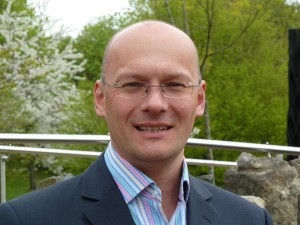
 It is too easy to remain in our offices and too complacent of us to accept that opportunities will simply appear be it to write a paper or be part of an application for a research grant. My advice is to escape the office on a regular basis, mingle with staff either in your own School or beyond, enjoy a chat over coffee or even register for that workshop, conference or event that you keep telling yourself you are too busy to attend. Getting out and about and communicating with your colleagues either at BU or further afield can lead to new friendships and hopefully a co-authored paper or two, a joint research seminar or if you are really lucky a grant application. One of my best “chance encounters” occurred on a work trip to Malaysia back in 2007 when I shared a taxi from the airport in Kuala Lumpur to the centre of the city with the former Director of Tourism for Antigua & Barbuda. In the space of 40 minutes we discussed the state of tourism in the Caribbean and sketched out a PhD proposal while at the same time agonising over which schools to send our respective children. To this day my “KL Taxi” acquaintance remains a good friend and in her new position in the Caribbean is no longer a “stranger” but someone who is a strong advocate of BU, an employer of our students, a conduit to professional international networks and …… a potential co-author and PhD candidate when the pressure of work subsides!
It is too easy to remain in our offices and too complacent of us to accept that opportunities will simply appear be it to write a paper or be part of an application for a research grant. My advice is to escape the office on a regular basis, mingle with staff either in your own School or beyond, enjoy a chat over coffee or even register for that workshop, conference or event that you keep telling yourself you are too busy to attend. Getting out and about and communicating with your colleagues either at BU or further afield can lead to new friendships and hopefully a co-authored paper or two, a joint research seminar or if you are really lucky a grant application. One of my best “chance encounters” occurred on a work trip to Malaysia back in 2007 when I shared a taxi from the airport in Kuala Lumpur to the centre of the city with the former Director of Tourism for Antigua & Barbuda. In the space of 40 minutes we discussed the state of tourism in the Caribbean and sketched out a PhD proposal while at the same time agonising over which schools to send our respective children. To this day my “KL Taxi” acquaintance remains a good friend and in her new position in the Caribbean is no longer a “stranger” but someone who is a strong advocate of BU, an employer of our students, a conduit to professional international networks and …… a potential co-author and PhD candidate when the pressure of work subsides! The
The 
 Could good networking then be the secret to being a successful academic? On reflection it’s a good way to identify new ideas, new ways to transfer knowledge to a wider audience and new partners for bids Maybe talking to strangers, or at least new people, is good advice after all.
Could good networking then be the secret to being a successful academic? On reflection it’s a good way to identify new ideas, new ways to transfer knowledge to a wider audience and new partners for bids Maybe talking to strangers, or at least new people, is good advice after all. The very successful
The very successful 

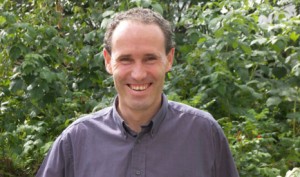 Richard received the award for having made a substantial impact in collaborative working within BU, and securing external funding to create an innovative research network involving internal colleagues and external institutions. The research undertaken by the network has led to high impact outputs.
Richard received the award for having made a substantial impact in collaborative working within BU, and securing external funding to create an innovative research network involving internal colleagues and external institutions. The research undertaken by the network has led to high impact outputs.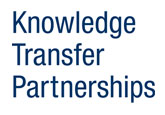
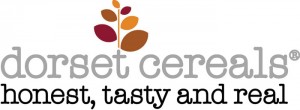
 Bournemouth University graduate Harriet McKay – who has since been appointed as the company’s Communications Manager – was brought in to deliver the marketing support. “When I started, the website was plain and there was absolutely no reason for customers to come back to the site,” Harriet explained. “I worked with the team at Dorset Cereals and their design agency to create a new website that would create more visits and importantly communicate their brand values. Before the University’s involvement the company had 16,000 emails on its database, now we have over 200,000. It’s been a fantastic success story.”
Bournemouth University graduate Harriet McKay – who has since been appointed as the company’s Communications Manager – was brought in to deliver the marketing support. “When I started, the website was plain and there was absolutely no reason for customers to come back to the site,” Harriet explained. “I worked with the team at Dorset Cereals and their design agency to create a new website that would create more visits and importantly communicate their brand values. Before the University’s involvement the company had 16,000 emails on its database, now we have over 200,000. It’s been a fantastic success story.”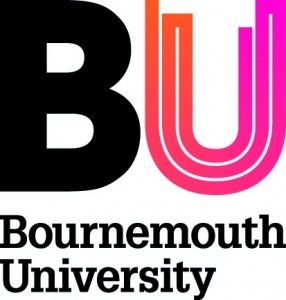











 Exploring Embodied Research: Body Map Storytelling Workshop & Research Seminar
Exploring Embodied Research: Body Map Storytelling Workshop & Research Seminar Marking a Milestone: The Swash Channel Wreck Book Launch
Marking a Milestone: The Swash Channel Wreck Book Launch No access to BRIAN 5-6th February
No access to BRIAN 5-6th February ECR Funding Open Call: Research Culture & Community Grant – Apply now
ECR Funding Open Call: Research Culture & Community Grant – Apply now MSCA Postdoctoral Fellowships 2025 Call
MSCA Postdoctoral Fellowships 2025 Call ERC Advanced Grant 2025 Webinar
ERC Advanced Grant 2025 Webinar Update on UKRO services
Update on UKRO services European research project exploring use of ‘virtual twins’ to better manage metabolic associated fatty liver disease
European research project exploring use of ‘virtual twins’ to better manage metabolic associated fatty liver disease